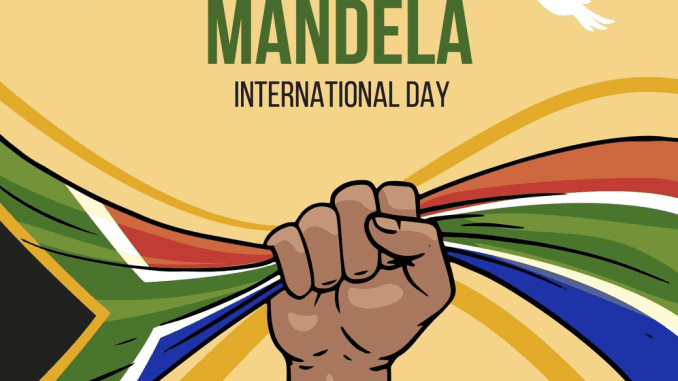
The yearly celebration of South Africa’s first non-racial democratic elections, held on April 27, is known as Freedom Day. It is noteworthy because it ushers in a new era of democracy headed by Nelson Mandela and a state governed by a new constitution, ending more than three centuries of colonialism, segregation, and white minority rule. The first nonracial elections were held as a result of years of struggle and negotiated settlement that also included formal all-party talks that drew up an interim constitution, the lifting of the ban on liberation organizations, the release of political prisoners, and the repatriation of exiles.
After protracted and tense discussions between 1991 and 1992, the event that forever altered the course of South African history occurred. These negotiations were held with the participation of the South African government, the African National Congress (ANC), the South African Communist Party (SACP), and other liberation forces.
A new democratic regime and a new national constitution were made possible by the 1994 election. Despite the fear of political violence, the elections were held in a cheerful and calm environment.
In the 1994 national election, 19.7 million of South Africa’s 22. 7 million eligible voters cast ballots. With 62.65% of the vote, the ANC emerged victorious in the election. The results show that the National Party (NP) received 20.39 percent, followed by the African Christian Democratic Party (ACDP) at 0.5%, the Pan Africanist Congress (PAC) at 1.2%, the Freedom Front (FF) at 2.2%, and the Democratic Party (DP) at 1.7%. Despite winning a majority of the vote, the African National Congress (ANC) established the Government of National Unity, led by ANC President Nelson Mandela, who became the nation’s first democratically elected President.
“As dawn ushered in this day, the 27th of April 1995, few of us could suppress the welling of emotion, as we were reminded of the terrible past from which we come as a nation; the great possibilities that we now have; and the bright future that beckons us,” President Nelson Mandela said in a speech marking the first anniversary of South Africa’s non-racial elections. No matter where South Africans are in the world, our hearts beat together as we reaffirm our shared commitment to the future of our nation. Like any other, the birth of our nation, South Africa, was a protracted and frequently agonizing process. A better existence is still the ultimate objective that has not yet been attained. You, the people, gained control of your own fate on this day. You made the decision that nothing would stop you from using your hard-earned freedom to choose the government you choose. Your perseverance, self-control, and unwavering dedication have made you a global legend.
The brutalities of the past, including detentions without trial, disappearances of our people, deaths in detention, hangings of those who opposed apartheid, imprisonment, exile, massacres, assassinations, forced removals, banishments, the Group Areas Act and many more laws that made the lives of Black people unbearable, are testimonies that our freedom was never free, Thabo Mbeki said during his final speech as president of South Africa on Freedom Day in 2008. Even though we all have scars to remind us that our sometimes-taken-for-granted freedom was never free, we walk tall today because of our combined efforts in making April 27th our Freedom Day.
“I am equally honored to celebrate this important day on our National Calendar in the province of KwaZulu Natal,” declared Kgalema Motlanthe, the interim president who succeeded Mbeki in 2009. Because generations of fearless warriors, courageous students, tenacious laborers, strong men and women, and those who felt it was their duty to deliver us our freedom battled for our independence here in this magnificent land of our grandparents. Even their own fear of dying would not deter them. As more generations joined them, this movement grew stronger. Their sole goal was to ensure that future generations would live to enjoy the benefits of freedom.
President Jacob Zuma paid tribute to the courageous activists who contributed to South Africa’s liberation during the 16th anniversary of Freedom Day celebrations held at the Union Buildings in Pretoria ahead of the FIFA 2010 World Cup.
He said, “On this day we remember all the brave men and women whose struggle and sacrifices made it possible for us to enjoy the benefits of democracy today.” Today is a time to take stock of our progress toward creating a new, democratic, united country. Crucially, it’s also a chance to reflect on how much our people’s everyday lives reflect the freedoms outlined in our Bill of Rights. We have created a country based on a strong commitment to the principles of justice and equality out of the ashes of a racially divided system. As our revered President Nelson Mandela taught us, we must never waver in our resolve that no one will ever again be oppressed by another in our lovely land.
South Africans have worked hard to right the wrongs of the past ever since they gained democratic freedom in 1994. There are still many issues that we must deal with, including racism, sexism, poverty, and criminality. Freedom Day gives South Africans the chance to reaffirm their dedication to their nation and its future, as well as to battle against the legacy of racism and economic injustice.
FAQs
What day is Freedom Day 2024?
Freedom Day 2024 is celebrated on the 27th day of April 2024.
What is Freedom Day?
Freedom Day is the anniversary of the first democratic elections in South Africa. Racial injustice and colonialism lasted for hundreds of years before South Africans of all races were allowed to elect their leaders. With the elections, South Africa’s apartheid system came to an end and a new era began.
What is the Importance of Freedom Day?
On this day, South Africans are reminded of the enormous sacrifices made by people and countries to free themselves from the shackles of unfair segregation.
Leave a Reply